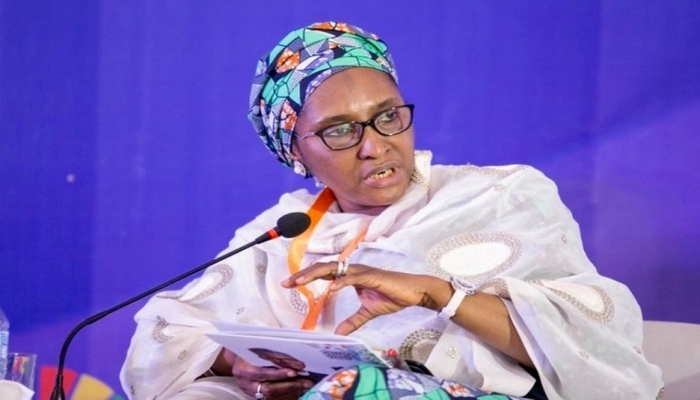
The Federal Government is looking to acquire funds from the International Monetary Fund (IMF) and is in talks with the World Bank to restructure the country’s debts.
Finance minister Zainab Ahmed also disclosed plans to take advantage of the IMF’s newly created fund on Wednesday after a meeting with the IMF and World Bank in Washington DC.
According to her, “The situation we have by our 2023 projection is that we will be needing to use about 65 per cent of our revenue to service debt. Unfortunately, the cost of debt service is rising because of the rising interest rate globally which is resulting also in higher debt service costs” .
She added: “But our projection from the debt sustainability analysis is that Nigeria is able to cope with its debt service in 2022 as well as in 2023. We have been engaging financial institutions to look at the opportunity to restructure our debt to further stretch the debt service period to give us more fiscal relief. Those are some of the things we want to achieve in this meeting.”
She said that Nigeria was also considering the IMF’s newly created Food Shock Window, which allows member countries to access emergency finances. The new window would be available for a year to provide additional access to emergency financing for countries facing urgent balance-of-payment needs related to the global food crisis.
“The IMF recently offered a food security package that countries can draw and it is equivalent to about 50 per cent of their SDRs. We have not taken a decision to draw on that, we have to examine what are the requirements to see if it will be safe for us to draw because we don’t want to be drawn into an IMF programme and as it is, we are studying the terms and conditions,” Ms Ahmed said.
“if they work for us, we will now decide to take it because the funds can certainly be useful in terms of adding to our reserves and also in terms of helping us to cope with the challenges that the country is facing especially as the floods that have been happening right now in the country is going to cause more stress on our food system.”
It would be recalled that last week, the World Bank raised concerns over Nigeria’s rising debt service-to-revenue ratio. In the World Bank biannual Africa’s Pulse report, which covers macroeconomic outlooks for World regions, Nigeria’s debt service to revenue ratio is estimated to stand at 102.3 per cent by the end of 2022.
The report further says: “Albeit at a low level (37.6 per cent), public debt in Nigeria is a concern as the country recorded a high debt service-to-revenue ratio (118.9 per cent) between January and April,” the report said. “Debt pressures have increased as debt service to revenue is projected to increase to 102.3 per cent by end 2022.”
A sum of N6,557,597,611,797 was slated for debt servicing in the 2023 appropriation bill presented to the National Assembly by the President last week Friday.
The bill on Wednesday had already scaled second reading in the Senate and has been referred to the senate Committee on Finance and Appropriation, meaning its passage is a mere ritual.






